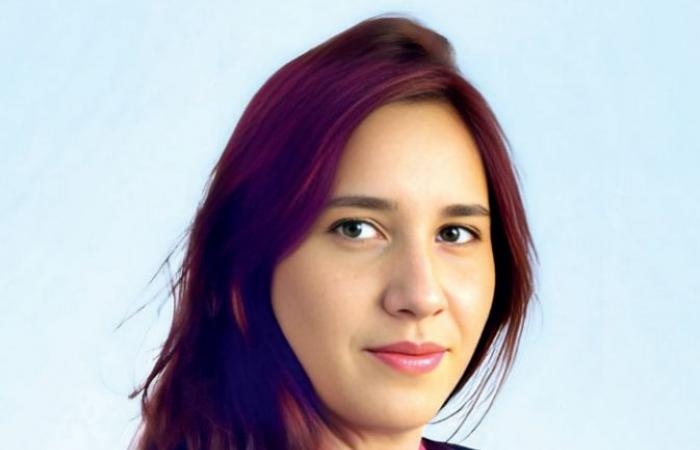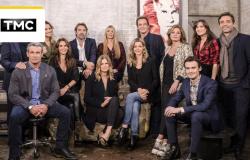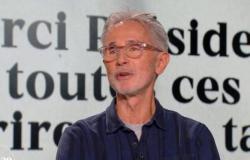Finances News Hebdo: Your professional career is rich and varied. Can you tell us about the key milestones that marked your career at Medi1 Radio?
Majdouline Benchrif : I have dedicated two decades of my life to my profession. Being news director at Medi1 Radio is one role among many that I have played in journalism for several years. It must be said that I learned journalistic work in this house where I was as much a presenter as a reporter or coordinator.diner. It’s not so much a story of climbing the ladder in my imagination, but of experiencing and experiencing different points of view on what it means to be “part of an editorial team.” I discovered radio at a very young age, and it offered me two intertwined passions: writing and voice. Learning about this entanglement began for me with the presentation of the journals. We acquire the meaning of information, what it fundamentally requires. Over the years, I also developed a taste for the terrain, and I had the chance to cover eventsimportant developments, in Morocco and abroad. The report had a profound impact on me, because it brought people back into contact with the sources, the witnesses. He teaches the art of connecting to tell a story about current events. Managing an editorial team sometimes takes me away from all that and I am very aware of it. So I have a mixture of nostalgia for my beginnings and a joy at being able to shape the line and content of Medi1 today.
FNH: Since March 2024, you have been director of information, and previously general editorial coordinator at Medi1 Radio. These are great responsibilities and a daily challenge. What motivates you in this role?
M.B. : You have to love your job, love it excessively to be able to live with the constraints that are part of the exercise of running an editorial office. Beyond professional and editorial knowledge, for me it is a question of human relationships: looking for how to team up. Managing journalists of different nationalities and sensibilities means knowing how to defend them and preserve their practice of the profession of journalism. It also means dealing with controversies, differences of opinion and personalities. This position requires me to continue to be a rigorous journalist and to bring cohesion to intense moments in the life of the editorial staff, to be reactive, especially attentive to major current events. And all this takes time. You have to give time when you are responsible.
FNH: Do you encounter any particular challenges as a woman in a position of responsibility within Medi 1 Radio? What do you think about female representation in the media, and are there any aspects that you would like to see evolve or even change?
M. B. : In meetings with department managers, he I often found myself being the only woman at the table. I have never felt any discomfort in these contexts, since from my point of view, I am simply facing colleagues. But the feeling of being caught in a double standard came over me. Ask other women, you will get almost the same answer. I was the first Moroccan journalist at Medi1 to reach the position of senior editor-in-chief. This implied for me to redouble my vigilance, and therefore my efforts. Many women feel obliged to prove their legitimacy as if their rigor and professionalism were minor. There is still a long way to go in the Moroccan media landscape. I firmly believe that promoting women’s salaries in editorial offices is essential, as well as establishing equal opportunities between men and women in terms of access to positions of responsibility. It is unfair and aberrant that the editorial staff is mainly made up of female journalists and that they do not manage them. Today, many women hold positions of responsibility at Medi1. I am proud of them and I support their rights. Through their journeys, they participate in paving the way for this equality that is lacking. This radio station has the merit of encouraging these women, and it is for this reason that I consider it a unique space of expression.
FNH: You plan to write a book based on your columns, an approach where your artistic side plays an important role. Can you tell us more? What messages would you like to convey through this work which brings together ten years of work?
M. B. : Writing this column has gradually been a breath of fresh air and freedom for me in an exercise that can be tiring, that of short time and instantaneousness. For 10 years, I have been revisiting, through this weekly meeting, what touches me in political, literary and social news. I allow myself a subjectivity, an expression of a point of view that other genres and journalistic formats do not allow me. It was the feedback from listeners that invited me to transpose these columns into a written form. This involves revisiting these radio texts and adapting them to what the read texts require. This is a project that is close to my heart, because I love writing. But also journalistic texts can be considered as a genre of minor writing, whereas in my opinion they are the trace of the witness of current events. Perhaps in the near future, their value may seem insignificant, but it will undoubtedly be valuable in a greater projection.
FNH: What do you think are the main differences between radio, television and podcasts in terms of content and audience interaction? Which exercise do you prefer?
M. B. : Radio is my first love, and it will always be. There is something unique about the voice, the intimacy with the microphone and the bond that it creates with the listener. There is a magic in the atmosphere of radio studios, whatever the formats produced there. I have the impression of finding an important closeness with listeners through voice that I have never experienced with other media. TV and the written press have their strengths, and each expression has its specificities of course. At the present time, the forms are intertwined: the spoken news are filmed and the TV subjects are taken up in writing. So the forms can complement each other, but they retain their temporality, their audience and irreplaceable ways of providing access to information, to stories.
FNH: Do you think that radio remains a relevant and competitive media in a world increasingly dominated by digital?
M. B. : When I started, in the 2000s, the press was exclusively printed. Then, little by little, the web replaced the written word, social networks took hold and podcasts appeared. I would say that we are in a major moment of change where the old media have not finished adapting. The radio, Medi1 in particular, was extremely listened to throughout the Coronavirus pandemic in Morocco or during the Al Haouz earthquake disaster. Our audience rates have exploded. Today, with the emergence of podcasts, I see a consecration of the success of radio, with the added possibility, thanks to delay, of accessing broadcasts at different rhythms and times.
FNH: The family environment in which we grow up necessarily influences our personality. What was your biggest motivation to break into such a demanding and sometimes thankless environment?
M. B. : I was lucky to grow up in a middle-class family, with a father who was a teacher and passionate about printing and painting, and a mother who was a teacher and calligrapher. My parents were keen to ensure our education, my sister and me, in a world of injustice and inequality. They passed on to us a love for cinema, literature, music and a fairly pronounced taste for politics. I grew up in an engaged environment where the expression of ideas and opinions was very encouraged. I am very grateful for it. My very first writing team was probably our house.
FNH: A career is strewn with challenges, experiences, but also anecdotes. What significant event has left an indelible mark on your career?
M. B. : That’s a great question, because I think humor is very important in the practice of journalism. Whether on the field, with teams or in front of directors, humor defuses tensions, brings points of view closer together, brings lightness to overly serious situations. So, anecdotes don’t come to me like that, but rather stories of humor. When I arrived at Medi1, Morocco was in mourning by the attacks of May 16. And when I signed my contract, there was the American invasion of Iraq. My colleagues at the time therefore spread a legend about me: Majdouline is causing the news! I ended up believing him. When we launched the common thread for the first time, I was designated to present it every weekend. And by pure chance, every Friday, an Arab leader was ousted during the Arab Spring and the entire program changed. This joke which has been running for years and which is fueled by colleagues pursues me and makes me laugh constantly.
FNH: Is there a particular wish you would like to realize in the near future?
M. B. : Today, my dream is to continue my journey in journalism and to evolve radio towards new formats, formats that allow better storytelling, to elevate information to storytelling. I dream of a time when possible accuracy in writing what goes through us would be possible. It’s the type of dream that puts you to work, and I like to dream like that.






